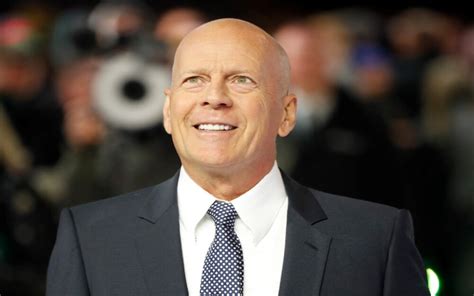Explore the early life and influences of Beatles legend, his impact on music and culture, and his successful solo career.
Early Life and Musical Influences
Contents
Paul McCartney was born on June 18, 1942, in Liverpool, England. He grew up in a musical family, with his father being a trumpet player and pianist. McCartney was encouraged to pursue his love for music from a young age and took up the guitar as a teenager. He was greatly influenced by American rock and roll artists such as Elvis Presley and Little Richard, as well as by Buddy Holly and the Everly Brothers.
McCartney’s musical influences also included the traditional pop music of the time, as well as the emerging genre of skiffle, which was a blend of jazz, blues, and folk music. Skiffle had a significant impact on McCartney’s early musical development, as it introduced him to a wide range of musical styles and techniques. He was also exposed to the music of American R&B artists, such as Ray Charles and Chuck Berry, which further shaped his musical taste.
During his teenage years, McCartney formed a skiffle group called The Quarrymen, which later evolved into the iconic band The Beatles. The band’s early repertoire consisted of covers of rock and roll and skiffle songs, reflecting McCartney’s diverse musical influences. As a songwriter and musician, McCartney drew inspiration from the music he had grown up listening to, blending various genres to create a unique and innovative sound.
McCartney’s exposure to a wide range of musical influences during his formative years laid the groundwork for his future success as a prolific songwriter and musician. His ability to incorporate elements of rock and roll, skiffle, R&B, and pop music into his work set him apart as a versatile and dynamic artist, shaping the landscape of popular music for generations to come.
Joining The Beatles
Paul McCartney’s journey to joining one of the most legendary bands in history began with a chance meeting with John Lennon at a church picnic in 1957. The two quickly bonded over their shared love for music and formed a close friendship. McCartney’s skill as a guitarist and vocalist impressed Lennon, and he was invited to join Lennon’s band, The Quarrymen, which would later evolve into The Beatles.
Upon joining the band, McCartney’s melodic bass lines and unique vocal harmonies became an integral part of The Beatles’ sound. His songwriting abilities also flourished during this time, as he collaborated with Lennon to create some of the band’s most iconic hits. The chemistry between McCartney and the other members of The Beatles was undeniable, and they quickly rose to fame, becoming one of the most influential bands of all time.
McCartney’s role in The Beatles extended beyond his musical contributions. His charismatic stage presence and undeniable talent made him a fan favorite, and he played a key role in shaping the band’s image and public persona. With his creative input and dedication to the success of The Beatles, McCartney solidified his place as an essential member of the group.
Joining The Beatles marked a turning point in McCartney’s life, propelling him to worldwide fame and success. The band’s impact on music and culture was immeasurable, and McCartney’s role in shaping their sound and image played a crucial part in their legacy.
Evolution as a Songwriter
One of the most fascinating aspects of Paul McCartney’s career is his evolution as a songwriter. From his early days with The Beatles to his solo career, McCartney’s songwriting style has continued to evolve and mature over the years.
When The Beatles first burst onto the scene in the early 1960s, McCartney’s songwriting was heavily influenced by the pop music of the time. Songs like I Want to Hold Your Hand and She Loves You showcased his knack for catchy melodies and simple, straightforward lyrics.
As The Beatles continued to experiment with different musical styles, McCartney’s songwriting began to take on a more sophisticated and introspective tone. His lyrics became more poetic and thought-provoking, with songs like Yesterday and Eleanor Rigby showcasing his ability to tackle deeper, more complex themes.
McCartney’s evolution as a songwriter didn’t stop with the end of The Beatles. Throughout his solo career, he continued to push the boundaries of his songwriting, embracing new musical styles and lyrical themes. From the whimsical pop of Band on the Run to the raw, emotional balladry of Maybe I’m Amazed, McCartney’s solo work has cemented his reputation as one of the most versatile and talented songwriters in the history of popular music.
In conclusion, Paul McCartney’s evolution as a songwriter is a testament to his creativity and artistry. From his early days with The Beatles to his solo career, McCartney’s songwriting has continued to evolve, showcasing his ability to adapt and grow as a musician.
Solo Career Success
After the breakup of The Beatles in 1970, Paul McCartney began his solo career. He wasted no time in establishing himself as a successful solo artist, releasing his debut solo album, McCartney, in 1970. The album was a commercial success, reaching number 1 on the US Billboard 200 chart.
In the following years, McCartney continued to release successful solo albums, with hit singles and critical acclaim. His album Band on the Run, released in 1973, was a major success and solidified his status as a solo artist. The album topped the charts in several countries and showcased his songwriting and musical talents.
Throughout the 1970s and 1980s, McCartney continued to thrive as a solo artist, releasing hit albums like Tug of War and Pipes of Peace. His collaboration with other prominent musicians and songwriters further established his solo career success. He maintained a strong presence in the music industry, touring and performing to sold-out shows around the world.
His musical versatility and innovative approach to songwriting led to a successful and enduring solo career. He explored various genres, from rock and pop to classical and electronic music, further demonstrating his creative range and abilities. His contributions as a solo artist have left an indelible mark on the music industry and have continued to inspire generations of musicians and fans.
Impact on Music and Culture
Paul McCartney’s impact on music and culture is immeasurable. As one of the most successful and influential musicians of all time, his contributions have left an indelible mark on the world. From his early days with The Beatles to his solo career and beyond, McCartney has continuously pushed the boundaries of music and has inspired countless artists and fans around the globe.
One of the most significant contributions McCartney has made to music and culture is his ability to write timeless and universally relatable songs. His lyrics often touch on themes of love, peace, and personal introspection, providing listeners with a sense of empathy and understanding. Songs like Yesterday and Let It Be continue to resonate with audiences of all ages and backgrounds, solidifying McCartney’s impact on the universal language of music.
In addition to his songwriting prowess, McCartney’s influence can be seen in the way he redefined the role of a rock star. With his charisma, charm, and musical talents, McCartney set a new standard for what it meant to be a global icon. He captivated audiences with his performances, effortlessly crossing cultural boundaries and uniting people through the power of music.
Furthermore, McCartney’s philanthropic efforts and humanitarian work have had a profound impact on the world. His involvement in various charitable initiatives, such as the Animal Rights Movement and Environmental Conservation, has helped raise awareness and support for important causes. McCartney has used his platform to advocate for positive change, proving that his influence extends far beyond the realm of music.
In conclusion, Paul McCartney’s impact on music and culture is nothing short of extraordinary. Through his music, activism, and persona, he has shaped the world in meaningful and lasting ways. His legacy will continue to inspire future generations and will undoubtedly continue to leave a profound impact on the world.












